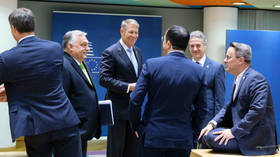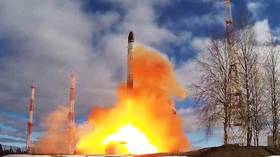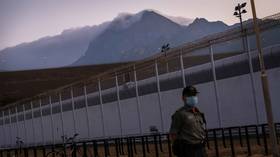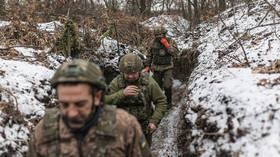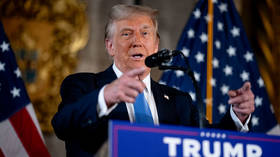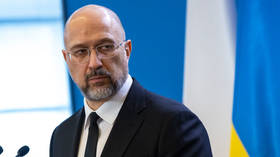EU states ‘surprised’ by Russia’s economic resilience – Reuters
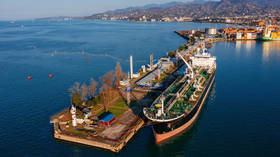
A number of EU states, including Germany and France, have asked the European Commission to assess if a potential ban on transshipments of Russian liquified natural gas (LNG) could backfire on the bloc, Reuters reported on Tuesday, citing diplomats.
EU members have broadly backed measures that could be added to a 14th package of sanctions against Moscow, including restrictions on Russian LNG exports, sources told the agency. Policymakers are seeking to agree the new restrictions before Hungary takes over the EU presidency in July, they added.
One diplomat told the agency that Brussels has been “truly surprised at the resilience of the Russian economy” in the face of existing sanctions.
In April, Swedish Foreign Minister Tobias Billstrom said the EU is planning to add restrictions against Russian LNG to its next sanctions package. Citing people familiar with the discussions, Bloomberg later reported that the 14th round of sanctions may include a ban on re-loading and transshipment services for LNG from Russia destined for third counties, as well as on servicing Russian LNG projects in the Arctic.
Brussels adopted its 13th package of sanctions against Moscow ahead of the second anniversary of the beginning of the Ukraine conflict in February. The measures were mostly aimed at closing loopholes to prevent Moscow from circumventing existing restrictions via third countries.
High-ranking EU politicians and diplomats have admitted that the scope for further sanctions is narrowing. Earlier this year, Lithuanian President Gitanas Nauseda acknowledged that measures taken by the bloc have failed to destabilize the Russian economy.
Earlier this month, Politico reported that Hungary could veto the latest EU sanctions proposal against Moscow. The nation’s top envoy reportedly warned that Budapest will block any measures that result in higher energy costs in the bloc.
Last month, Kremlin spokesman Dimitry Peskov said restrictions on Russian LNG along with efforts to “squeeze” the country out of energy markets will only lead to higher gas prices for EU consumers. The official argued that sanctions against Russian LNG exports would be illegal, but would nonetheless be overcome.
